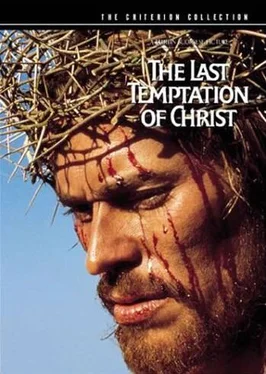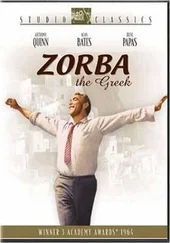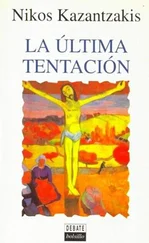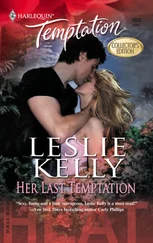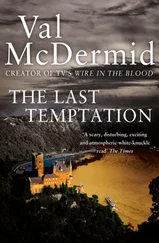Nikos Kazantzakis - The Last Temptation of Christ
Здесь есть возможность читать онлайн «Nikos Kazantzakis - The Last Temptation of Christ» весь текст электронной книги совершенно бесплатно (целиком полную версию без сокращений). В некоторых случаях можно слушать аудио, скачать через торрент в формате fb2 и присутствует краткое содержание. Жанр: Современная проза, на английском языке. Описание произведения, (предисловие) а так же отзывы посетителей доступны на портале библиотеки ЛибКат.
- Название:The Last Temptation of Christ
- Автор:
- Жанр:
- Год:неизвестен
- ISBN:нет данных
- Рейтинг книги:5 / 5. Голосов: 1
-
Избранное:Добавить в избранное
- Отзывы:
-
Ваша оценка:
- 100
- 1
- 2
- 3
- 4
- 5
The Last Temptation of Christ: краткое содержание, описание и аннотация
Предлагаем к чтению аннотацию, описание, краткое содержание или предисловие (зависит от того, что написал сам автор книги «The Last Temptation of Christ»). Если вы не нашли необходимую информацию о книге — напишите в комментариях, мы постараемся отыскать её.
The Last Temptation of Christ — читать онлайн бесплатно полную книгу (весь текст) целиком
Ниже представлен текст книги, разбитый по страницам. Система сохранения места последней прочитанной страницы, позволяет с удобством читать онлайн бесплатно книгу «The Last Temptation of Christ», без необходимости каждый раз заново искать на чём Вы остановились. Поставьте закладку, и сможете в любой момент перейти на страницу, на которой закончили чтение.
Интервал:
Закладка:
The boy moved away from the corner where he had been standing with the scroll under his shirt. Going up to the lectern, he began again to read. But his voice, like his superior’s, had now grown fierce.
“ ‘I looked in my night visions and, behold, one like a son of man came upon the clouds of heaven and approached the Ancient of days, and was brought near to him. And to him was given dominion and glory and the kingdom, and all peoples, nations and men of all tongues served him. His dominion is an everlasting dominion, that shall never end; and his kingdom is indestructible.’ ”
The Abbot, unable to restrain himself any longer, left his stall, took one step, then one more, reached the lectern, tripped and was about to fall, but managed to put his palm heavily down on the holy manuscript and steady himself.
“Where is the son of man you promised us? Did you give us your word or didn’t you? You can’t deny it-here it is in writing!” He banged his hand angrily, exultantly, on the prophecy. “Here it is in writing! John, read it again!”
But the Abbot could not wait. Before the novice had time to start, he seized the scripture, lifted it high into the light and began, without looking, to cry out in a triumphant voice: “’To him was given dominion and glory and the kingdom, and all peoples, nations and men of all tongues served him. His dominion is an everlasting dominion, that shall never end; and his kingdom is indestructible.’ ”
He left the scroll open on the lectern and looked through the window at the darkness outside.
“Well, where is the son of man?” he shouted, gazing into the blackness. “He isn’t yours any more, seeing that you promised him to us-he’s ours! Well, where is he? Why don’t you give him dominion, glory and the kingdom so that your people, the people of Israel, can govern the whole universe? Our necks are stiff from watching the sky and waiting for it to open. When, when? Yes-why do you harp on it-we know well enough that one second for you is a thousand years for men. All right, but if you’re just, Lord, you’ll measure the time with man’s measure, not with yours. That’s what justice means!”
He started toward the window, but his knees sagged and he halted and thrust out his hands as though he wanted to steady himself on the air. The boy ran to support him, but the Abbot grew angry and nodded to him not to touch him. Calling up all his strength, he reached the window, leaned against the wall, extended his head as far as he could, and looked out. Darkness… The flashes of lightning were fewer now, but the waters still thundered down upon the rocks which flanked the monastery. Every time the cacti were hit by lightning they seemed to whirl about and be transformed: they became a nation of cripples with the leprous stumps of their arms lifted toward the sky.
Tensing body and soul, the Abbot listened. From far in the distance came the howling of the wild game of the desert. The animals were not hungry; they were afraid. Close by, almost on top of them, a beast wrapped in fire and whirlwind bellowed and approached in the darkness. The Abbot listened to the voices of the desert and as he listened suddenly he shuddered and turned. Some invisible being had entered his cell! He looked. The seven flames of the candelabrum flickered turbulently and were on the point of going out; the nine strings of the harp, which was leaning unused in a corner, vibrated wildly, as though some invisible hand had seized them in a fury in order to snap them. The Abbot began to tremble.
“John,” he said softly, looking around him, “come here, close to me.”
The boy flew out of his corner and approached.
“Command me, Father,” he said, and he placed his knees on the ground, to prostrate himself.
“John, go and call the monks. I have something to tell them before I depart.”
“Before you depart, Father?”
The boy shuddered. Two large black wings, beating in back of the old man, had caught his eye.
“I’m going,” said the Abbot, and his voice suddenly seemed to come from beyond the other shore, “I’m going! Didn’t you see the seven flames lurch and draw away from their wicks? Didn’t you hear the nine strings of the harp vibrate madly, ready to snap? I’m going, John. Run and call the monks. I want to speak to them.”
The boy bowed his head and disappeared. The Abbot remained standing in the middle of the cell under the seven-branched candelabrum. Now at last he was alone with God: he could speak his mind freely, with no fear of being overheard. He lifted his head calmly; he knew that God stood before him.
“I’m coming, I’m coming,” he said to him. “Why do you enter my cell, why do you try to put out the light, shatter the harp and capture me? I’m coming, and not only of your will, but of my own. I’m coming. I hold in my hands the tables on which the complaints of my people are written. I want to see you and speak to you. I know you don’t listen or at least pretend you don’t listen, but I shall bang on your door until you open, and if you don’t open (nobody’s here now to hear me, so I’ll speak freely), if you don’t open your door, I shall break it down! You’re fierce, you love fierce people-they alone you name your sons. Until now we have wept, prostrated ourselves and said, Your will be done! But we cannot last any longer, Lord. How long are we going to wait? You are fierce, you love fierce people-we shall become fierce. Our wills be done now-ours!”
As the Abbot spoke he kept his ear tensed so that he could hear whatever was in the air. But the rain had abated, the thunder had retreated into the distance-the claps were muffled and came from the east, far away over the desert. The seven flames burned steadily above the old man’s white head.
The Abbot waited in silence. He waited a considerable time for the flames to waver again, for the harp to quiver once more with fright… Nothing! He shook his head. “The body of man is accursed,” he murmured. “It’s the body which always intrudes and refuses to allow the soul to see and hear the Invisible. Slay me, Lord. I want to be able to stand before you free of the dividing wall of the flesh, so that when you speak to me I shall hear you!”
The door of the cell had opened noiselessly meanwhile, and the untimely awakened monks had filed in, dressed all in white. They stood against the wall like so many ghosts, and waited. They had heard the Abbot’s last words, and the breath stuck in their throats. He’s talking with God, they said to themselves, he’s upbraiding God: now the thunderbolt will fall upon us! They stood against the wall, trembling.
The Abbot looked off into the distance. His eyes were somewhere else; they did not see. The novice approached and prostrated himself.
“They have come, Father,” he said. He spoke softly, in order not to frighten him.
The Abbot heard his subordinates voice. Turning, he saw the others. He moved from the center of the cell, walking methodically, slowly, holding his moribund body as straight as he was able. He reached the stall, mounted the low stool in front, and halted. The phylactery with the holy apophthegms which was around his arm came undone. The novice darted forward in time to retie it tightly, before it could be soiled by touching the ground on which men walk. The Abbot put out his hand and grasped the ivory-hilted abbot’s crosier which was next to the stall. Feeling new strength, he tossed his head high and swept his eyes over the monks who were lined up against the wall.
“Friars,” he said, “I have a few words to say to you-my last. Open your ears, and if anyone is sleepy, let him leave! What I am about to say is difficult. All your hopes and fears must wake up and alert their ears in order to give me an answer!”
Читать дальшеИнтервал:
Закладка:
Похожие книги на «The Last Temptation of Christ»
Представляем Вашему вниманию похожие книги на «The Last Temptation of Christ» списком для выбора. Мы отобрали схожую по названию и смыслу литературу в надежде предоставить читателям больше вариантов отыскать новые, интересные, ещё непрочитанные произведения.
Обсуждение, отзывы о книге «The Last Temptation of Christ» и просто собственные мнения читателей. Оставьте ваши комментарии, напишите, что Вы думаете о произведении, его смысле или главных героях. Укажите что конкретно понравилось, а что нет, и почему Вы так считаете.
